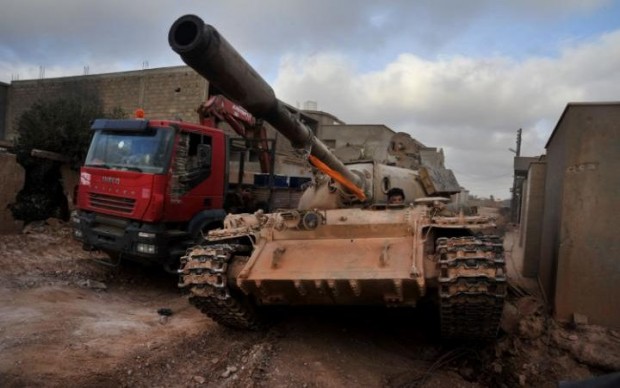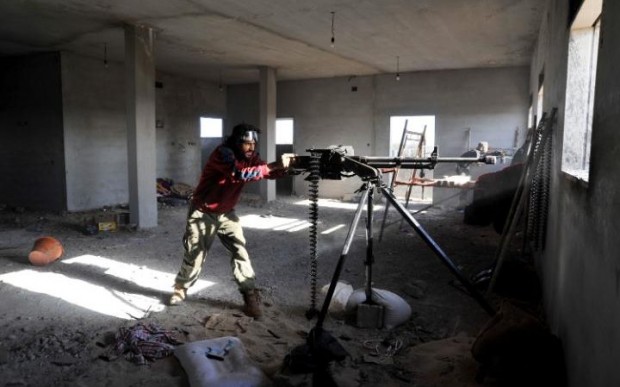UK intervention plan in Libya risks turning it into a new Afghanistan

A proposed British military intervention in Libya risks the same pitfalls that blighted the bloody Afghanistan campaign, a former UK commander in the north African country has warned.
Plans to join an Italian-led training force to bolster Libyan forces to against Islamic State militants could be prone to similar mission creep that saw international troops become bogged down after the fall of the Taliban.
Without a carefully thought through plan, soldiers could again find themselves unwittingly drawn into local power struggles and even find feuding militias uniting against them.

Col Rupert Wieloch, who until 2012 was the senior British commander in the country, said any international mission to the country faced “a great danger of mission creep”.
Ministers and senior commanders have proposed sending up to 1,000 British soldiers if the country asks for help to halt the spread of Islamic State in Iraq and Levant (Isil) fighters who have seized hundreds of miles of coastline around Sirte.
Col Wieloch, who took part in short-lived efforts to stablise the country after Col Muammar Gaddafi was toppled, said the mission had to be clearly defined, or it risked being sucked deeper into a Libyan conflict.
He said: “It would be very tempting to get involved in other things other than just training, for example crisis response, or defeating Isil itself.
“We have seen this before in a number of operations.
“It’s then very easy for the local population to not understand what the international community is trying to do.”
He said it was “absolutely the case” that troops could inadvertently be drawn into political disputes they had little understanding of.
The country has been divided between two competing regimes since 2014 and a new UN-brokered unity government is being opposed by hardliners on both sides.
Col Wieloch said an Italian-led military mission was likely to be viewed with suspicion because of their brutal colonial history in the country, and said the training force should instead be under Muslim command.
Troops should not be deployed without intensive cultural training and briefing so that they avoid falling foul of the rival factions and murky politics, he suggested.
“The one thing that would coalesce the militias into fighting together is a large intervention of Western forces with boots on the ground.”
He said the Libyans were “very suspicious about outsiders coming in and basically wanting to steal their resources. All you will do by going in to these places ignorantly is coalesce the local population to fight you and that’s not going to help anyone.
“It’s got to be well thought through, with properly trained people going out there and it’s got to be a mixture of not just military, but civilians as well.
“I believe it has to be Muslim-led because it’s all very well to say the Italians are going back in, but they have not got a good reputation because the Libyan’s remember the fascist regime.”
Col Wieloch has now retired and written about his experiences in Libya in a memoir called Belfast to Benghazi.
The Government says it has made no final decision on whether to send troops to Libya and has yet to receive a formal invitation for help from the Tripoli government.
How to submit an Op-Ed: Libyan Express accepts opinion articles on a wide range of topics. Submissions may be sent to oped@libyanexpress.com. Please include ‘Op-Ed’ in the subject line.
- Libya’s HCS invites applicants for key state roles - December 31, 2023
- UK calls on Iran to prevent escalation in Israel-Hamas conflict - November 05, 2023
- Libyan Interior Minister: Immigrant shelter costs a fortune - November 05, 2023


